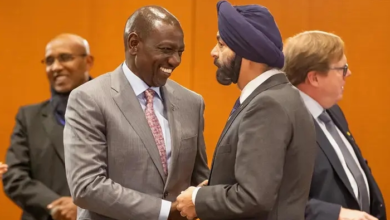
Kenya will see its inflation fall to 6.0% year-on-year by end-2023, from the July rate of 7.3%.
This is according to FitchSolution in its Sub-Saharan Africa reform tracker which said the score will be informed by the ease of opposition pressure from the Azimio One Kenya faction to abandon the 3 percent Housing levy.
Kenya’s parliament voted in June this year to impose a new 1.5% housing levy on employees that will be matched by employers. This has been met with social and political opposition.
Fitch expects the Kenya Kwanza administration to successfully implement the levy at its scheduled date of January 2024, as the cost of living eases.
Kenya implemented a Value Added Tax (VAT) hike on fuel (from 8.0% to 16.0%) in July in an effort to improve the country’s fiscal dynamics, which have been strained by rising interest expenditure.
President William Ruto will have a positive impact on his fiscal policies and will culminate in an enhanced revenue collection in the current fiscal year.
“Indeed, we believe that the new tax will support fiscal intakes, which we forecast to increase from Ksh.2.5 trillion in fiscal year (FY) 2022/23 to Ksh.2.8 trillion in FY2023/24,” said FitchSolutions.
On August 1, 2023, President Ruto announced plans to reform Kenya’s education sector, which includes the scrapping of the categorisation of secondary schools and the removal of compulsory subjects for career choices.
“We believe that this has the potential to make Kenya’s labour force more attractive to international investors.”
The reform, if passed, has the potential to improve the quality of labour supply in the long term and could increase employment for the Kenyan youth – according to Fitch.






Your point of view caught my eye and was very interesting. Thanks. I have a question for you.